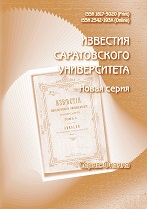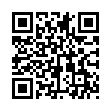|
Methodical department
Dissertation as a scientific narrative
V. M. Anikinab, I. V. Izmailovc, A. V. Lyachinc, B. N. Poiznerc
a Saratov State University
b Saratov Branch, Kotel'nikov Institute of Radio-Engineering and Electronics, Russian Academy of Sciences
c Tomsk State University, 36 Lenin Ave., Tomsk 634050, Russia
Abstract:
The article draws the attention of the authors of dissertations (undergraduates, graduate students, applicants) to the narrative aspect of the dissertation. Signs of the concept of “narrative” (from the English “narrative” is “story”) can be fully attributed to the dissertation (from the Latin “dissertatio” is “research”). This is already indicated by the source of the term: it comes from the Latin word narrare (“tell”), which is related to gnarus (“knowing something, knowledgeable”) and ignorantia (“ignorance, inexperience”). The thesis should possess the qualities of an “explanatory story”, which reveals from the position of the author the history of knowledge in the field of research and the history of the author's own creative growth, accompanied (on the basis of the analysis) by the formulation of causal relationships between the described phenomena. The success of this situation in the process of writing a dissertation is associated with the development of the ability of undergraduates and graduate students to reflect on the scientific text and their internal “transformations”, i.e. transitions from the role of “listener” to the role of “storyteller”, and vice versa, and also to control the type of discourse.
Keywords:
dissertation, narrative, narrator, narratator, statusoriented discourse.
Citation:
V. M. Anikin, I. V. Izmailov, A. V. Lyachin, B. N. Poizner, “Dissertation as a scientific narrative”, Izv. Sarat. Univ. Physics, 19:4 (2019), 317–326
Linking options:
https://www.mathnet.ru/eng/isuph362 https://www.mathnet.ru/eng/isuph/v19/i4/p317
|

| Statistics & downloads: |
| Abstract page: | 48 | | Full-text PDF : | 13 | | References: | 15 |
|




 Contact us:
Contact us: Terms of Use
Terms of Use
 Registration to the website
Registration to the website Logotypes
Logotypes







 Citation in format
Citation in format 